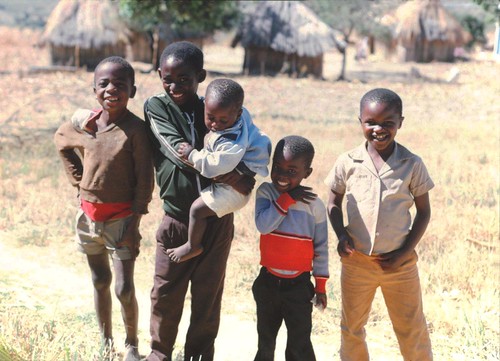Difference between revisions of "Who Can Be Adopted from Zimbabwe"
(Created page with "{{#eimage:https://farm5.staticflickr.com/4034/4596050707_097894ac5c.jpg|410x579px|thumb|''''''<BR/>Source: Wikipedia.org.}} In addition to U.S. immigration requirements, Zi...") |
(No difference)
|
Latest revision as of 05:28, 7 April 2015
In addition to U.S. immigration requirements, Zimbabwe has specific requirements that a child must meet in order to be eligible for adoption:
Relinquishment: Written consent to the adoption must be provided by each of the prospective adoptive child’s birth parents, who is living and can be located. The Ministry of Public Service, Labour and Social Welfare determines whether a child is eligible for adoption.
Abandonment: A child whose birth parents are deceased, or who was abandoned, is available for adoption at the determination of the Ministry of Public Service, Labour and Social Welfare. Death certificates are normally required in cases where the birth parents are deceased, to demonstrate the child’s orphan status. If the child was abandoned, evidence of abandonment may be required.
Age of Adoptive Child: The prospective child must be under 18 years of age. A waiver from the Ministry of Public Service, Labour and Social Welfare is required for children over the age of 18. Please note that in order for a child to meet the definition of orphan under U.S. immigration law, a Form I-600 petition must be filed while the child is under the age of 16 (or under the age of 18 if adopted or to be adopted together with a natural sibling under the age of 16).
Sibling Adoptions: None.
Special Needs or Medical Conditions: Zimbabwean law does not require disclosure of a child’s HIV status.
Waiting Period or Foster Care: The waiting period is normally a minimum of six months.
Caution: Prospective adoptive parents should be aware that not all children in orphanages or children’s homes are adoptable. In many countries, birth parents place their child(ren) temporarily in an orphanage or children’s home due to financial or other hardship, intending that the child return home when this becomes possible. In such cases, the birth parent(s) have rarely relinquished their parental rights or consented to their child(ren)’s adoption.
Back to Adopting from Zimbabwe
